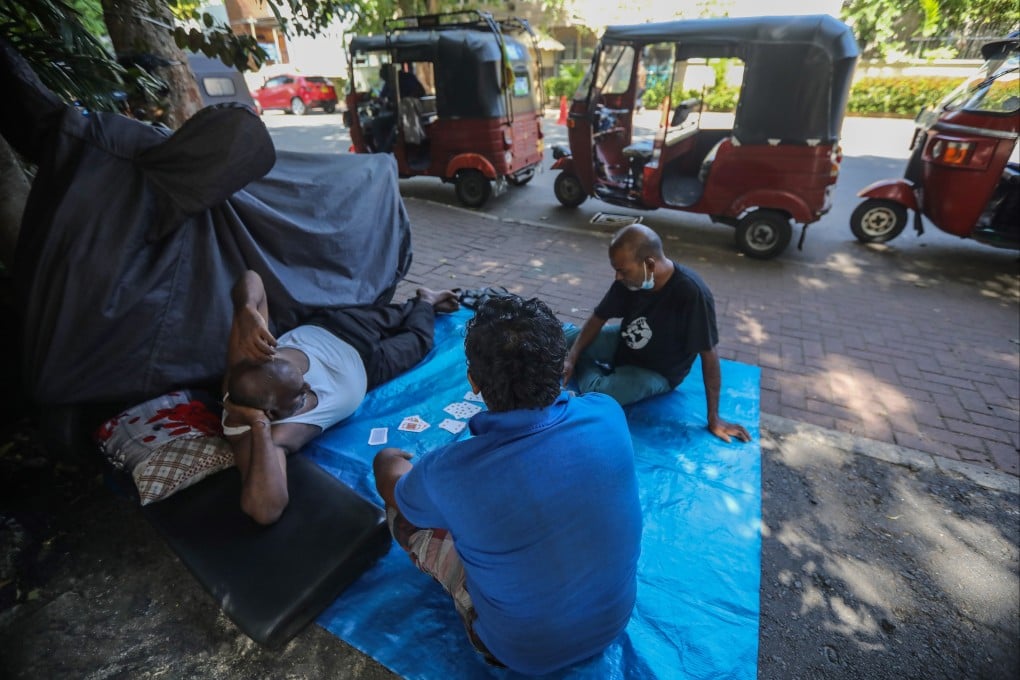Advertisement
Sri Lankans endure days-long waits for fuel, shuttered schools and cancelled surgeries with no end in sight to energy crisis
- Sri Lanka will only operate ‘essential services’ from now until July 10, as it struggles to manage its remaining fuel supply
- The country’s fuel crisis is taking a toll on schools, hospitals and critical export industries such as the seafood sector
Reading Time:3 minutes
Why you can trust SCMP
1

For almost forty years, Chandra made a living by transporting people in his trishaw. Now nearly 71 years old, in recent weeks he has found himself frequently spending half a day or more seeking out petrol suppliers, as Sri Lanka struggles with the energy crisis that is at the heart of its deep economic woes.
“Last week, I almost died while trying to get petrol. I waited in a fuel queue for close to 36 hours, and it was physically exhausting because I pushed the trishaw for miles before reaching the petrol pump. It was also extremely hot during the daytime,” said Colombo resident Chandra.
As Sri Lanka’s foreign reserves dwindled and fuel supplies declined steeply since the onset of the crisis in April, long queues have formed for petrol and cooking gas.
Advertisement
In recent weeks the situation has seemingly taken a turn for the worse, with reports in local media of over 10 people collapsing and dying while waiting in line.

The Sri Lankan cabinet on Monday announced that only essential services including health, agriculture, food supply, ports and airports, will operate until July 10, and that fuel will only be issued for essential services.
Advertisement
Advertisement
Select Voice
Choose your listening speed
Get through articles 2x faster
1.25x
250 WPM
Slow
Average
Fast
1.25x